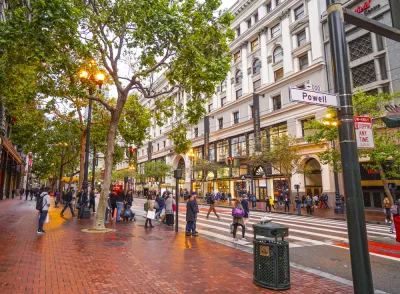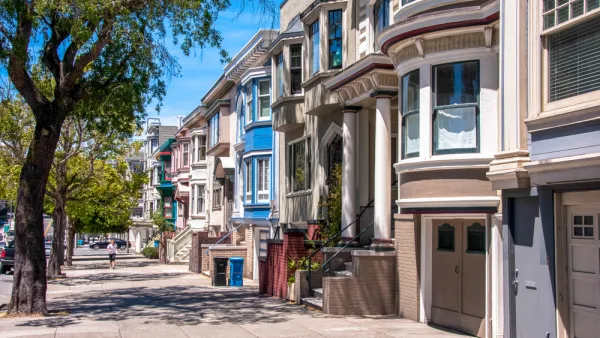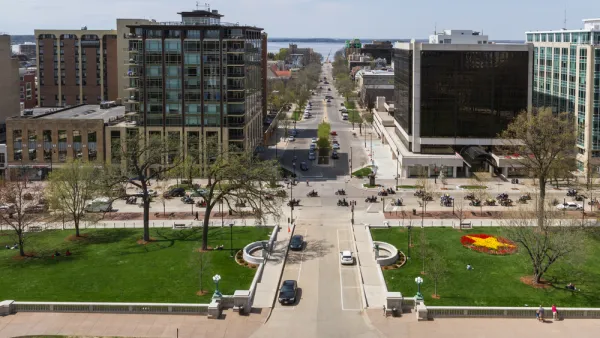State legislators are decrying the Board of Supervisors' decision to reject a proposal to build a 495-unit apartment building on a downtown San Francisco parking lot.

As California's housing crisis deepens, local decisions about density and development are being closely watched by housing advocates and legislators across the state. As Alexei Koseff reports, the rejection of a 495-unit housing development in San Francisco has brought fierce criticism from state legislators who want California to mandate higher density requirements to meet housing goals.
For some of the leading supporters of those efforts, the confusing collapse of the project in an alley near the corner of Sixth and Market streets — which San Francisco supervisors sent back to the drawing board after it won approval from the city Planning Commission, citing concerns about gentrification, shadows and seismic safety — is a stark example of why state intervention is not only necessary, but should escalate.
The development at 469 Stevenson would have replaced a surface parking lot with a 27-story tower housing 73 affordable units, a number that some Supervisors called inadequate. Supporters of the project argue that market-rate housing relieves pressure on the housing market and provides funding for affordable housing via the city's inclusionary housing program.
Some California legislators believe statewide mandates are crucial to easing the housing crunch and slowing the rise of housing costs in the state's major metropolitan areas, while others worry that urban centers like San Francisco are evading responsibility by rejecting projects like 469 Stevenson and focusing blame on single-family neighborhoods. In the last legislative session, the state passed multiple bills aimed at preventing cities from hindering new housing construction, incentivizing higher density, and eliminating single-family zoning that include a new 'Housing Accountability Unit' dedicated to enforcing housing production targets.
FULL STORY: Why state lawmakers are fired up over a derailed S.F. housing project

Analysis: Cybertruck Fatality Rate Far Exceeds That of Ford Pinto
The Tesla Cybertruck was recalled seven times last year.

National Parks Layoffs Will Cause Communities to Lose Billions
Thousands of essential park workers were laid off this week, just before the busy spring break season.

Retro-silient?: America’s First “Eco-burb,” The Woodlands Turns 50
A master-planned community north of Houston offers lessons on green infrastructure and resilient design, but falls short of its founder’s lofty affordability and walkability goals.

Test News Post 1
This is a summary

Analysis: Cybertruck Fatality Rate Far Exceeds That of Ford Pinto
The Tesla Cybertruck was recalled seven times last year.

Test News Headline 46
Test for the image on the front page.
Urban Design for Planners 1: Software Tools
This six-course series explores essential urban design concepts using open source software and equips planners with the tools they need to participate fully in the urban design process.
Planning for Universal Design
Learn the tools for implementing Universal Design in planning regulations.
EMC Planning Group, Inc.
Planetizen
Planetizen
Mpact (formerly Rail~Volution)
Great Falls Development Authority, Inc.
HUDs Office of Policy Development and Research
NYU Wagner Graduate School of Public Service




























